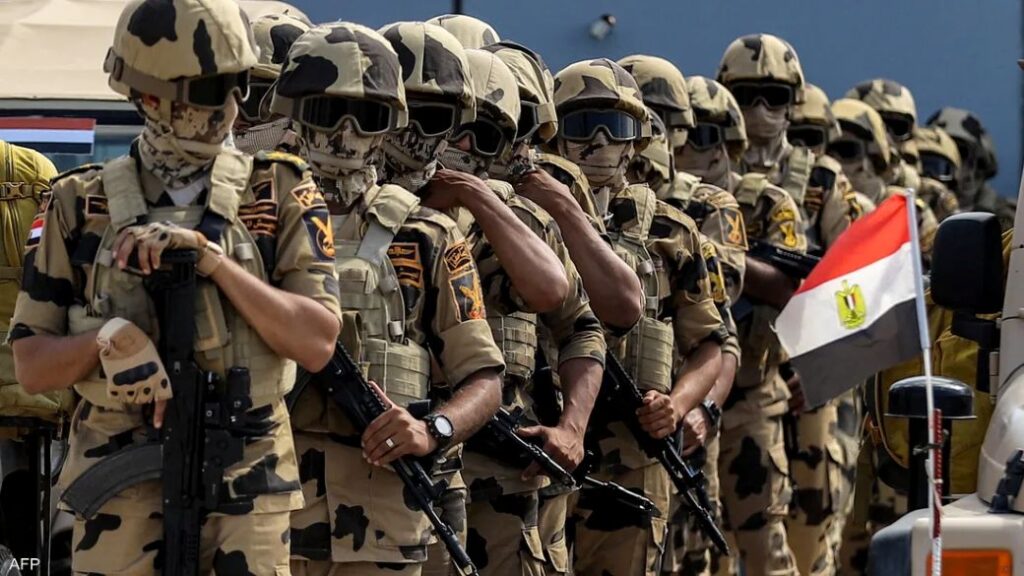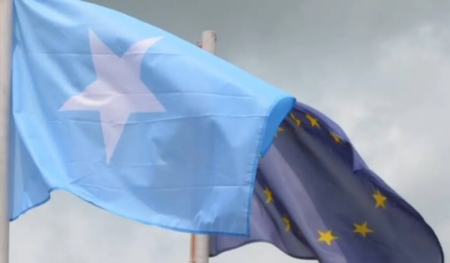An Egyptian military delegation has completed a week-long assessment mission in Somalia ahead of the planned deployment of Egyptian troops under the African Union Support and Stabilization Mission in Somalia (AUSSOM).
According to Somalia’s official news agency, the delegation’s visit marks a significant step in Cairo’s commitment to supporting regional peace and stability.
Somali Defense Minister Bids Farewell to Egyptian Delegation
Somalia’s Minister of Defense, Ahmed Moalim Fiqi, hosted a farewell ceremony on Saturday in honor of the Egyptian officers, following the conclusion of their official visit from August 30 to September 5, 2025.
Minister Fiqi expressed deep appreciation to Egyptian leadership, government, and people, noting that the deployment of Egyptian troops will be a valuable addition to ongoing security and counterterrorism efforts in Somalia.
He emphasized that Cairo’s involvement would further strengthen military cooperation between the two nations.
Field Visits and Preparations
During their stay, the Egyptian officers visited several key locations, including the towns of Jowhar, Bal’ad, Mahaday, and Borne, as well as the Baledogle Airbase, which is expected to host part of the Egyptian contingent under AUSSOM.
The delegation, led by Major General Islam Radwan, also held talks with Ambassador Mohamed El-Amine Souef (Haj Ibrahim Dineh), the African Union Special Representative for Somalia and head of AUSSOM.
Discussions centered on operational readiness and coordination mechanisms for the Egyptian troops deployment.
Ambassador Souef thanked Egypt for its commitment to peacekeeping, stressing that Egyptian troops will enhance the mission’s ability to restore security and stability in Somalia.
Egypt’s Role in AUSSOM
Egypt’s participation comes as part of the African Union’s broader strategy to strengthen peacekeeping and regional security following the conclusion of the African Union Transition Mission in Somalia (ATMIS) in December 2024.
The new mission, AUSSOM, officially launched in January 2025, with an initial 12-month mandate approved by the UN Security Council.
Its primary goal is to support Somalia in the fight against Al-Shabaab, which has waged an insurgency for more than 15 years.
Egypt had signaled its intent to join the mission in late 2024, following the signing of a military cooperation protocol with Somalia in August 2024.
The agreement outlined Egyptian participation in AUSSOM from 2025 to 2029, alongside commitments to provide military equipment and training for the Somali National Army.
Military Cooperation Between Somalia and Egypt
In the past year, Egypt has stepped up its engagement with Somalia:
- December 2024: Egypt’s Foreign Minister Badr Abdelatty confirmed troop deployment upon request from Somalia’s federal government and with approval from the African Union Peace and Security Council.
- September 2024: Cairo delivered military equipment to Mogadishu as part of its support package.
- August 2024: The two countries signed a protocol of military cooperation covering training, logistics, and peacekeeping participation.
- Early 2025: Somalia’s Ministry of Defense announced the completion of the first training course for Egyptian troops, preparing them for peacekeeping duties under AUSSOM.
Egypt’s entry into Somalia through AUSSOM has both security and geopolitical implications for the Horn of Africa, let’s explore the impact together…
Impact of the Egyptian Troops Deployment on the Horn of Africa:
The deployment of Egyptian forces to Somalia under the African Union Support and Stabilization Mission (AUSSOM) carries weight beyond peacekeeping:
- Strengthening Security in Somalia
- Egyptian troops will provide crucial support in countering Al-Shabaab insurgency, boosting Somalia’s security forces.
- A stronger AUSSOM presence could help stabilize Mogadishu and surrounding regions, improving conditions for governance and development.
- Regional Counterterrorism Strategy
- Egypt’s participation aligns with a wider African Union and UN-backed strategy to curb extremist threats that could spill into neighboring Kenya, Ethiopia, and Djibouti.
- Cairo brings significant counterterrorism experience, which may enhance regional capacity.
- Geopolitical Balance in the Horn of Africa
- The Horn has long been a stage for rivalries between regional and external powers.
With Egypt’s presence, the balance of influence shifts, particularly in relation to Ethiopia and the Red Sea corridor. - It signals Egypt’s growing interest in securing the Bab al-Mandab Strait and Indian Ocean trade routes, both vital to its national security.
- The Horn has long been a stage for rivalries between regional and external powers.
Ethiopia’s Position from Egypt’s Military Cooperation with Somalia
Ethiopia views Egyptian involvement in Somalia through a sensitive lens, shaped by their long-standing tensions over the Grand Ethiopian Renaissance Dam (GERD) and Nile water disputes.
Strategic Concerns
Ethiopia has historically seen Somalia as part of its security buffer.
An increased Egyptian role there may be perceived as Cairo expanding its military footprint near Ethiopia’s borders, potentially complicating Addis Ababa’s regional strategy.

Competing Influence
Ethiopia has contributed thousands of peacekeepers to Somalia over the years, both under AMISOM/ATMIS and unilateral arrangements.
Egypt’s arrival could be viewed as diluting Ethiopia’s influence in Somali affairs.
Diplomatic Nuance
Publicly, Ethiopia is unlikely to oppose Egypt’s deployment since it comes under an AU mandate.
However, behind the scenes, Addis Ababa may closely monitor Cairo’s moves, wary of any security alignment between Somalia and Egypt that could tilt regional politics.
Somalia-Ethiopia Tensions
Ethiopia’s relations with Somalia have been strained recently, particularly over Ethiopia’s port access ambitions in Somaliland.
Egypt’s closer partnership with Mogadishu could therefore give Somalia a stronger counterweight against Ethiopia in these disputes.
Egypt’s entry into Somalia under AUSSOM is more than a peacekeeping gesture — it is a strategic move in the Horn of Africa that reshapes security dynamics, adds weight to counterterrorism, and introduces new layers to the ongoing Egypt-Ethiopia rivalry.
While welcomed by Somalia and the African Union, it may generate quiet unease in Addis Ababa, as Cairo cements a presence in a region vital to Ethiopia’s security and maritime ambitions.








